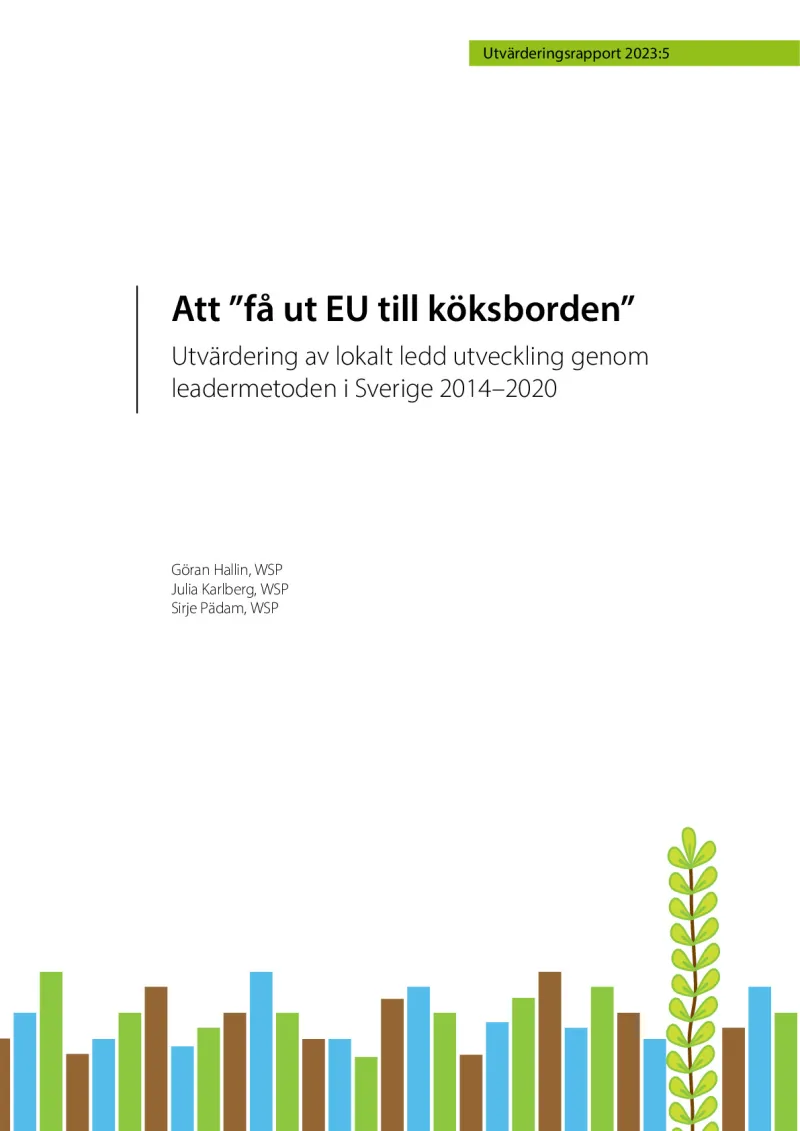Bringing the EU to the kitchen table: Evaluation of community-led local development through the LEADER approach
The evaluation's purpose is to increase knowledge about implementing community-led local development through the LEADER method, which is funded by the Swedish Rural Development Programme (RDP).
- Sweden
- 2014-2022
- Socio-economic impacts


This report, published in 2023, is part of the evaluation of the 2014-2022 RDP and represents the final ex-post evaluation of LEADER.
It assesses the achievement of objectives, results and impacts of community-led local development (CLLD) through the LEADER method in Sweden during the 2014-2020 programming period. The report also assesses the effectiveness of LEADER implementation and the so-called added value of LEADER.
The evaluation has been carried out by assessing the achievement of LEADER's objectives, results, and impacts, assessing the effectiveness of the LEADER implementation organisation (effectiveness of the implementing organisation), and studying the added value of implementing CLLD through the LEADER approach.
The evaluation helps to answer the EU-wide evaluation question: To what extent has the RDP promoted local development in rural areas?
The evaluation is based on information from the Swedish Board of Agriculture on the implemented LEADER projects, document studies, surveys and interviews.
In order to assess LEADER, the evaluation analyses strengthened local social capital, developed local governance (multi-level governance) and better project results.
LEADER implementation shows good results, but the effect is likely to be mostly local. The LEADER projects covered broad themes and can be considered to have the potential to create many types of results. Several success factors have been identified, such as the broad support, perceived relevance of the projects and long-term nature of the projects. All in all, LEADER has made a difference where the projects have been implemented. However, it is not realistic to scale up this effect at a more aggregated level (i.e. the national LEADER aspect). LEADER has created added value in terms of strengthened social capital and increased trust. The development and anchoring of local strategies have been particularly important in this process. Also, the relatively short lead times of the LEADER method between the design of strategies and the actual implementation seem to strengthen stakeholders’ sense of participation and, thus, local social capital.
Author(s)
Göran Hallin, WSP Julia Karlberg, WSP Sirje Pädam